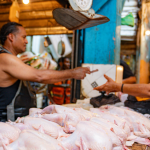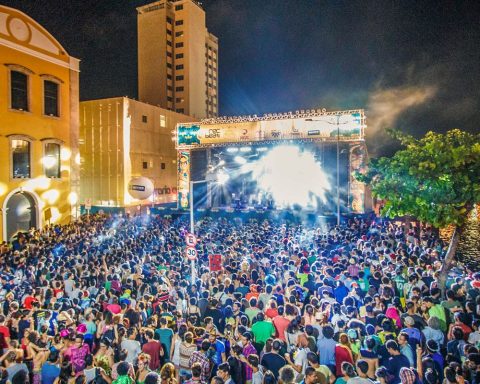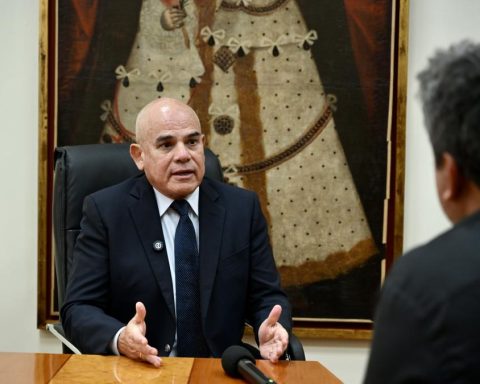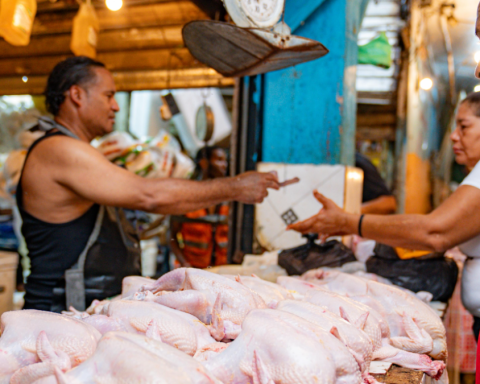Alcira Gaitán, a 42-year-old Miskitu woman, lived with her two daughters in an indigenous community made up of 150 families in Waspam, in the North Caribbean Coast Autonomous Region (RACCN) of Nicaragua. “We worked in the fields, we harvested our rice, our beans. That’s how we survived,” recalls Gaitán. In November 2020, everything changed.
Hurricanes Iota and Eta, category 4 and 5, respectively, impacted the North Caribbean Coast of Nicaragua less than two weeks apart. Hundreds of indigenous and Afro-descendant families lost everything. “We were completely displaced… We lost our houses, our crops”, adds Alcira.

Faced with the destruction of their communities and neglect by the State, many migrated to nearby territories, but were once again displaced by armed settlers. “My life was in danger and I moved to Managua, but two months later I came to Costa Rica, because I couldn’t find a job,” explains Gaitán from La Carpio, a neighborhood located in the Josefina capital.
Reymunda López, 36, is another Miskitu woman displaced by widespread violence and hurricanes. In 2015, she and her family were expelled by armed settlers from the indigenous community of Santa Clara, and were forced to move to Puerto Cabezas. “We tried to return to our community after five years, but we couldn’t because we no longer had our house. Then the hurricanes happened and we lost everything again. It was when I decided to come to Costa Rica”, she recounts.
Indigenous migration to Costa Rica due to natural disasters associated with climate change is a recent phenomenon, but it is on the rise, says Amaru Ruíz, president of the canceled NGO Fundación del Río. “Central America is highly vulnerable to the effects of climate change. Displacement for climatic reasons is increasingly latent in the region. In the case of Nicaragua, the increase in the number and intensity of hurricanes has greatly impacted these communities, increasing their already existing vulnerabilities due to the invasion of their territories, and being forced to find another place that allows them to rebuild their lives. ”, he exposes.
Miskitu people have more difficulties to integrate
Indigenous people displaced by hurricanes have found a refuge in Costa Rica. However, they face legal, economic, social, and cultural difficulties in integrating into Costa Rican society.
Regularizing your immigration status in Costa Rica is one of the main ones.
Alcira entered Costa Rica irregularly in March 2022 with the little money she had managed to save working in Managua and was welcomed by a Miskitu leader who emigrated months before due to suffering political persecution in Nicaragua. “The first months were very hard, because I didn’t have my papers in order,” she says. She could not work, access public services, such as health, or carry out procedures that require valid identification before the Costa Rican State. Children must also have a refugee claimant card to access the education system and other public services.
Economic survival is another challenge. In September, the Costa Rican Directorate of Migration and Aliens granted Alcira her provisional card as a refugee applicant, which also works as a work permit. However, she has only gotten temporary informal jobs with minimum wages and not every month she is able to cover her housing rent, food, transportation, medical treatment and the money she sends to her daughters in Nicaragua. “It’s hard, because here everything is different,” she says.
For Reymunda López, the situation is even more difficult. She arrived in Costa Rica at the end of 2021 together with her husband and her two children, but she has not been able to find a job, although she already has her refugee applicant card. “I have looked for work in some stores, but they tell me that she has to be a well-dressed, well-presentable girl and they don’t want to give me any,” she says. Her husband is the sole breadwinner for the family and does informal seasonal jobs.
The language for those who are more used to using their mother tongue is also an extra limitation. “I don’t speak Spanish very well, but now I’m learning more,” says López.

“It is essential to recognize migration for climatic reasons”
For Gabriela Oviedo, coordinator of the Human Mobility Project of the Center for Justice and International Law (CEJIL), it is important that receiving States understand and recognize this type of forced migration, so that they can deal with it in a timely manner.
“In the case of Nicaragua, the impact of the hurricanes restricts the right to housing, the right to physical integrity, to health, even the right to life. Added to a sociopolitical crisis and lack of state protection due to lack of will… We are facing a massive violation of human rights, ”he adds.
“We are coming to Costa Rica because nobody supports us in Nicaragua,” says Alcira.
The Convention on the Status of Refugees (1951) and the United Nations do not legally recognize climate migrants in the field of International Law. The General Law of Migration of Costa Rica only recognizes as refugees those people who “due to well-founded fear of being persecuted for reasons of race, religion, nationality, gender, belonging to a certain group or political opinion, are outside the country of their nationality and is unable or, owing to such fear, is unwilling to avail himself of the protection of that country.
“Giving these people legal recognition as climate displaced persons will allow them to integrate adequately into society, and access public services and other rights,” Oviedo considers.
Legislative proposal to shelter climate displaced persons
In December 2012, a bill was presented to the Costa Rican Legislative Assembly that seeks to grant refugee status to people displaced by events related to climate change.
“What is proposed is to add an additional paragraph to the article that regulates the conditions for the granting of refuge within the Migration and Aliens Law. What we are indicating is that people displaced by causes associated with climate change will also be among the people subject to refugee status and that implies all the rights for that refugee status”, explains Enrique Sánchez, promoter of the proposal.
For Sánchez, the presentation of this proposal is a first step to start a national debate on migration for climate reasons and its impact on the region. “We do not know if the refugee category is what fits in this case, but we wanted to start the discussion. It is necessary to anticipate that this phenomenon will continue to increase and we must have a position on the matter ”, he explains. At this time the proposal is in a consultation period with international organizations.
For the Miskitus displaced by the hurricanes, this proposal represents a ray of hope. “More and more people continue to enter because of the hurricanes. With this – Alcira comments on the proposal – we could see the way in which the Government of Costa Rica gives us greater support”.















